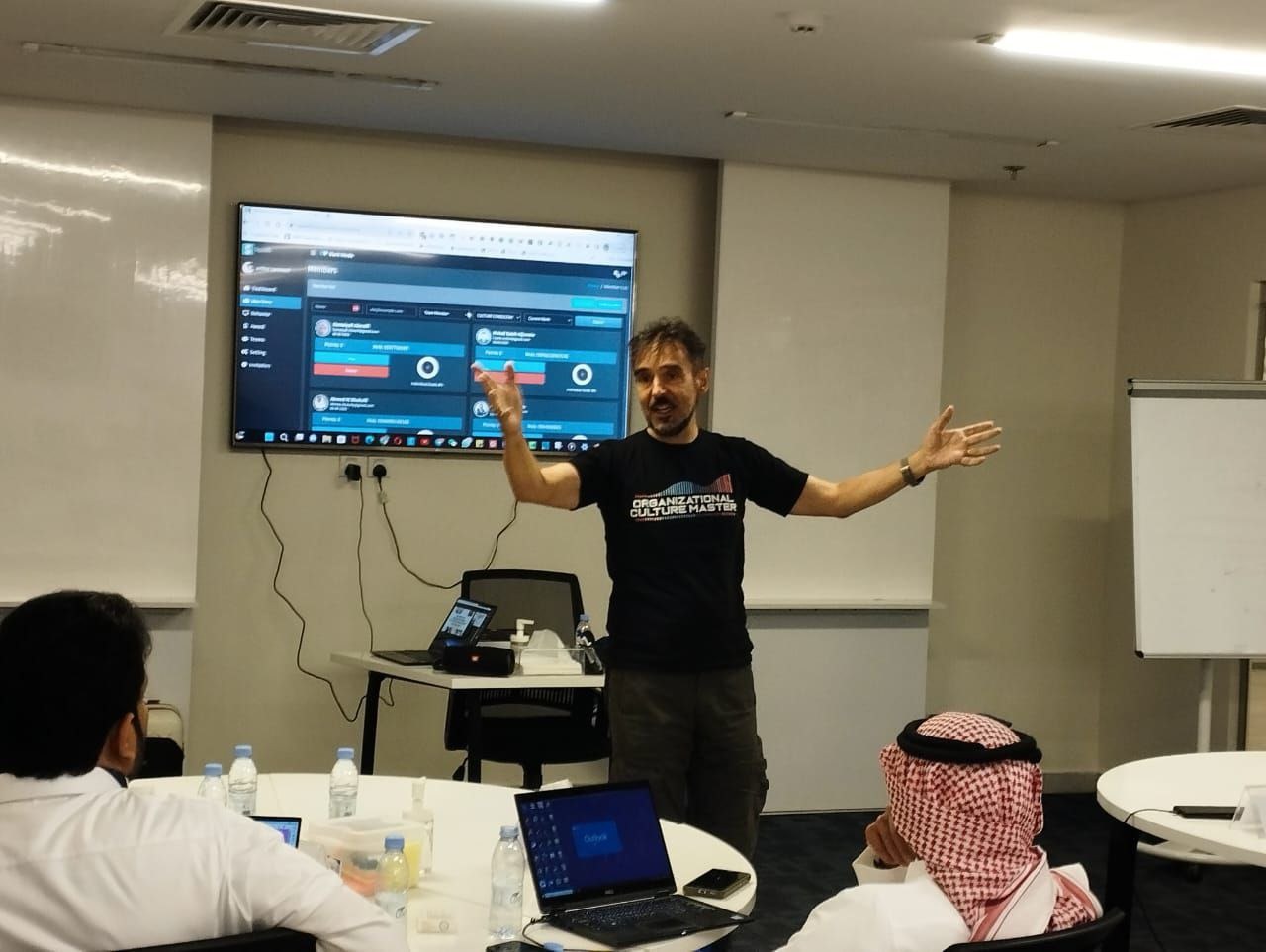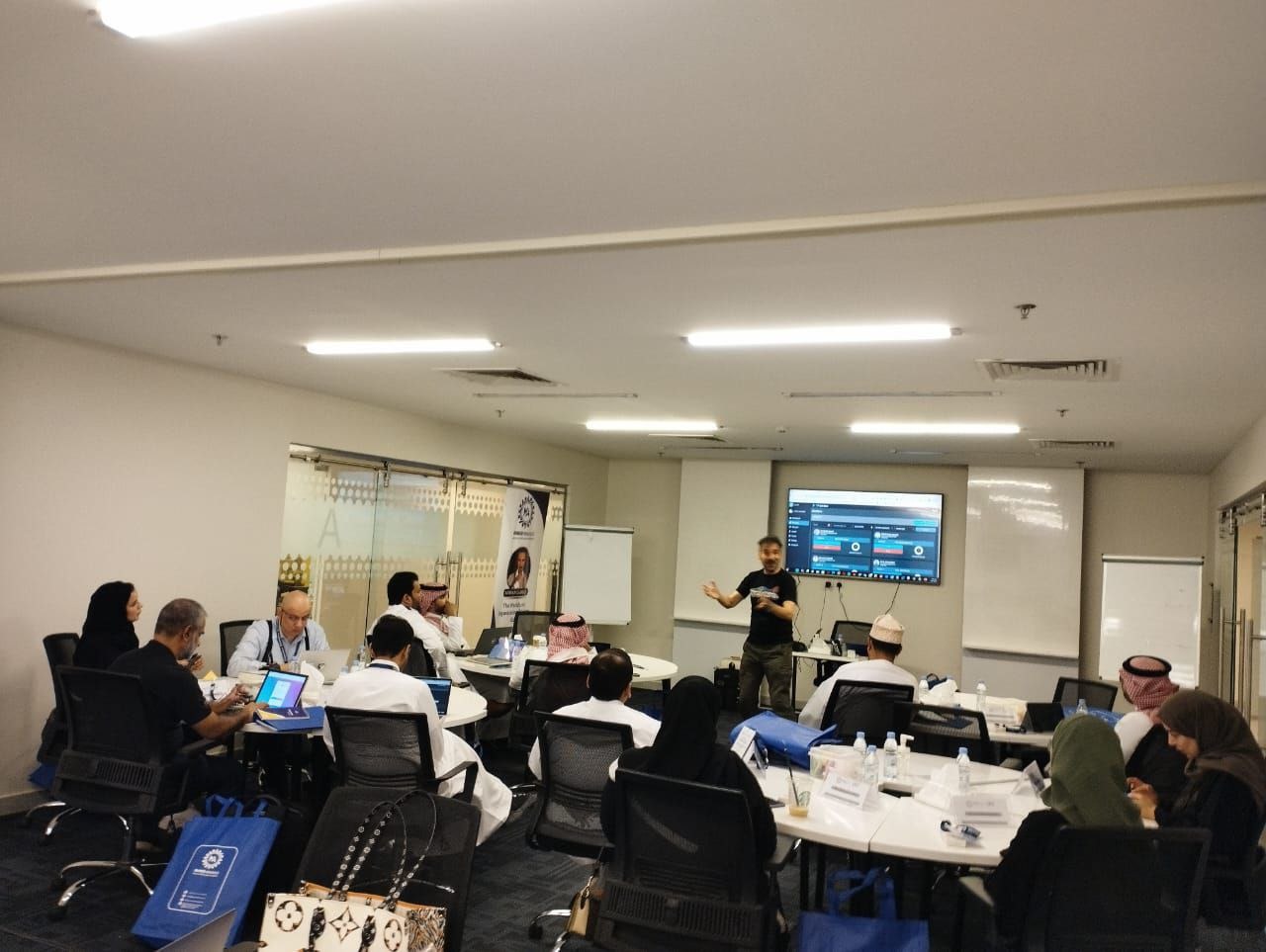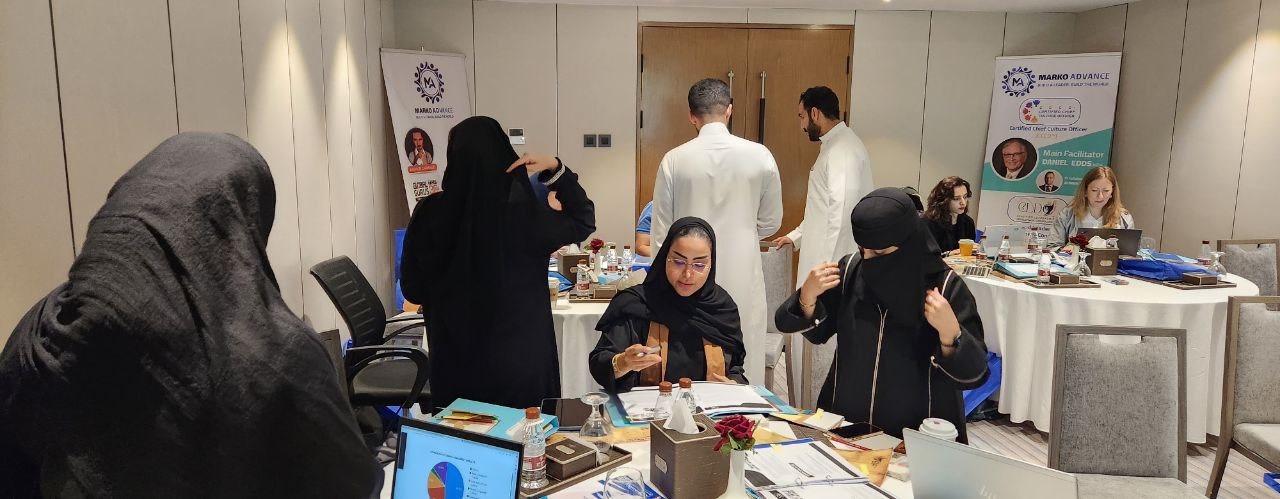
The leadership styles and corporate structures in Saudi Arabia are deeply influenced by the country’s culture and ongoing transformations under Vision 2030. This ambitious initiative, led by Crown Prince Mohammed bin Salman, aims to transform Saudi Arabia into a global leader, opening the country to the world and fostering economic, social, and environmental progress. It emphasizes the development of Saudi youth, encouraging creativity and skill advancement to realize this vision.
The management style in Saudi Arabia is typically hierarchical, with managers often adopting an authoritative approach. Subordinates usually do not question decisions made by managers and expect instructions to be clear and unambiguous. This deference shown to managers may be influenced not just by their organizational position, but also by factors such as family status, class connections, and age.
In terms of approach to change, Saudi Arabia is characterized as a low-risk and low-change-tolerant culture. New projects are carefully analyzed to minimize risks. For change to be embraced, it needs to be perceived as beneficial for the group and accepted by them. This highlights the importance of cultural sensitivity and the need for gradual evolution rather than rapid transformation.
One study comparing leadership styles in public and private sector organizations in Saudi Arabia revealed that while there is a tendency towards risk aversion and reliance on authority, there are also indications of a preference for consultation and participation among managers. This suggests that while there are overarching trends in leadership styles, there can be significant variations across different organizations.
But the leadership styles in Saudi Arabia have undergone a significant transformation in alignment with the strategic direction of Vision 2030. The Crown Prince’s leadership is seen as a role model for this new era, embodying the values of ambition, innovation, and a forward-thinking mindset. This new leadership style is not only about directing human activity towards common goals but also about understanding the motives of others and balancing creativity, purpose, and confrontation.
The impact of this leadership shift is evident in various sectors, including advancements in women’s rights, the economy, and business initiatives. By focusing on developing the skills and capabilities of the Saudi youth and encouraging them to meet challenges head-on, Vision 2030 aims to build a better future for the Kingdom, not just for the present but for the long-term as well.
To align leadership styles with the goals of Vision 2030 and foster a culture conducive to this transformative agenda, Saudi leaders might consider incorporating more participative and innovative approaches. This could involve encouraging open communication, nurturing creativity, and gradually introducing changes that align with the collective goals and values of the organization and the wider society. Additionally, investing in leadership development programs that emphasize these aspects could be beneficial for the long-term success of Vision 2030 and the transformation of organizational culture in Saudi Arabia.
As Saudi Arabia progresses towards its Vision 2030, it is essential to understand personal and organizational psychology in tandem with Saudi culture and traditions. Arthur Carmazzi’s Directive Communication Psychology and work gamification techniques offers a transformative approach adaptable to the Saudi Organizational Culture and 2030 goals. This blend of fostering a culture of innovation, participation, and continuous improvement in Saudi organizations supports the shift to a Global Innovation Hub.
What has to happen:

Traditional Leadership and the Need for Change
In the traditional Saudi corporate landscape, leadership is hierarchical and authoritative. While this ensures order and respect for seniority, it may hinder innovation and risk-taking – elements crucial for Vision 2030. Adapting these leadership styles to be more inclusive and participative is thus necessary.
Arthur Carmazzi’s Culture Evolution
The Culture Evolution framework suggests evolving organizational culture through a Bottom Up initiative that is predictable through its discovery. This initiative allows the people of the organization to transform the culture from a state of complacency to a dynamic, leadership-enriched environment with full . This involves transitioning through stages like the Blame Culture, the Brand Congruent Culture, and finally, the Leadership Enriched Culture, each facilitating specific actions and mindset shifts implemented by the organization’s current influencers armed with DC Psychology.
Incorporating Gamification for Cultural Transformation
Carmazzi’s Work Gamification strategies apply the idea that the current state of technology has created more Impatience, and as such, feedback and performance measurement need to be Fast, Easy and have the ability to be corrected. Using the Squadli work gamification app developed by Carmazzi, KPIs and Objectives are reverse engineered into behaviors to be able to give daily, correctable feedback.
A key aspect of these strategies, can be an effective tool in this transformation. It involves applying game-design elements in non-game contexts to enhance user engagement, motivation, and participation. In a corporate setting, this can translate to:
Fast and Easy Feedback: Recognizing the modern workforce’s need for immediate feedback, Carmazzi’s strategies recommend implementing systems that provide quick and straightforward and fun behavior evaluations. If “innovation” is set as a behavior, it aligns with the dynamic nature of Saudi Arabia’s evolving workplace under Vision 2030.
Correctability in Performance Measurement: An important aspect of Carmazzi’s approach is the ability to swiftly correct and adjust goals based on a changing landscape. This flexibility is crucial in a rapidly evolving economy like Saudi Arabia, where agility and adaptability are key.
- Use of Squadli for KPIs and Objectives: Squadli, a work gamification app developed plays a pivotal role in sustainable motivation. It makes it easy to provide both positive and negative behavior feedback in a constructive way, and each data point only takes 14 seconds
- Encouraging a Culture of Continuous Improvement: By integrating gamification, organizations can foster a culture where continuous improvement is not just encouraged but also tracked and rewarded in real-time, keeping in line with the forward-thinking ethos of Vision 2030.

Five Practical Steps for Culture Change and Gamification Integration
- Facilitate Open Communication and Idea Sharing: Incorporate platforms for idea exchange and collaboration, encouraging a shift from top-down to a more inclusive decision-making process.
- Empower Through Autonomy and Decision-Making: Use gamified elements to delegate responsibilities, allowing employees to make decisions and contribute to strategy.
- Gamify Results and 2030 Values by Reverse Engineering Results to Behaviors: Provide instant and fun feedback within a clear structure to make sure the team is actioning on and applying behaviors that will support them to achieve success.
- Develop a Psychology based Reward and Recognition System: Create group dynamics psychology awareness and build gamified behaviors that allow people to feel their value in the organization and how they directly support the 2030 framework where creativity, innovation, and teamwork are recognized and rewarded.
- Align Individual Goals with Organizational Vision: Encourage employees to see how their personal achievements and growth align with the organization’s objectives, using gamified tracking and visual progress indicators.
DC Psychology and Culture Evolution System are particularly suited to support Saudi Arabia’s Vision 2030 and its current cultural context due to their focus on adaptive leadership and organizational transformation. This system emphasizes understanding and leveraging the diverse psychological dynamics present in multi-age, multi-cultural groups, which is crucial in a culturally rich and diverse country like Saudi Arabia. By applying the principles of Directive Communication Psychology, Saudi leaders can better navigate the cultural nuances and diverse workforce, fostering an environment of innovation, inclusivity, and progressive change. The Culture Evolution process aids in systematically transitioning traditional organizational cultures into more dynamic, future-oriented ones. This aligns seamlessly with Vision 2030’s goals of economic diversification, technological advancement, and social reform, as it promotes a more adaptive, responsive, and collaborative approach to leadership and organizational development.

The incorporation of AI avatars in a “Learning Metaverse” environment, as exemplified by platforms like Carmazzi’s Global Mentor Exchange, can significantly augment organizational culture change in Saudi organizations, particularly in alignment with Vision 2030. These AI-driven avatars provide an innovative and interactive way to facilitate communication and clarity within a virtual space. In a Saudi corporate setting, where traditional structures are evolving and the workforce is becoming increasingly diverse and modernized, the metaverse can offer a unique platform for training, collaboration, engagement, and organizational values communication. AI avatars can simulate real-life scenarios, offer personalized learning experiences, and foster a more inclusive environment by transcending physical boundaries. This technology aligns with the digital and technological advancements encouraged by Vision 2030, providing a cutting-edge tool for enhancing communication, understanding, and cultural adaptation in Saudi organizations. The use of such technology can lead to more effective and engaging methods of implementing organizational change, catering to the needs of a tech-savvy generation and promoting a forward-thinking corporate culture.
For more information about these connect with Arthur’s team at: support@directivecommunication.com



